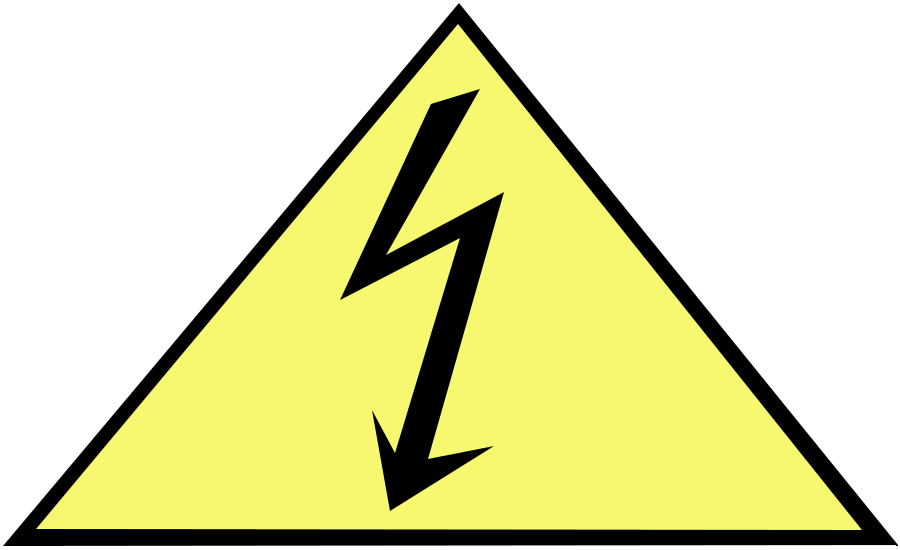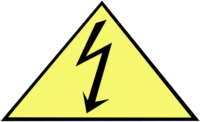Beware of this risk in pools, marinas

With plenty of summer still ahead, the National Fire Protection Association (NFPA) is reminding people about potential electrical hazards that exist in swimming pools, hot tubs and spas, onboard boats and in waters surrounding boats, marinas, and launch ramps.
Most people have never heard of nor are they aware of electrical dangers posed in water environments such as electric shock drowning (ESD), and each year people are injured or killed from these hazards.
Electric shock drowning happens when marina or onboard electrical systems leak electric current into the water. The current then passes through the body and causes paralysis. When this happens, a person can no longer swim and ultimately drowns.
Here are tips for swimmers, pool and boat owners:
Tips for swimmers
• Never swim near a marina, dock or boatyard, or near a boat while it’s running.
• While in a pool, hot tub or spa, look out for underwater lights that are not working properly, flicker or work intermittently.
• If you feel a tingling sensation while in a pool, immediately stop swimming in your current direction. Try and swim in a direction where you had not felt the tingling. Exit the water as quickly as possible; avoid using metal ladders or rails. Touching metal may increase the risk of shock.
Tips for pool owners
• If you are putting in a new pool, hot tub or spa, be sure the wiring is performed by an electrician experienced in the special safety requirements for these types of installations.
• Have a qualified electrician periodically inspect and — where necessary — replace or upgrade the electrical devices or equipment that keep your pool, spa or hot tub electrically safe. Have the electrician show you how to turn off all power in case of an emergency.
• Make sure any overhead lines maintain the proper distance over a pool and other structures, such as a diving board. If you have any doubts, contact a qualified electrician or your local utility company to make sure power lines are a safe distance away.
Tips for boat owners
• Avoid entering the water when launching or loading a boat. Docks or boats can leak electricity into the water causing water electrification.
• Each year, and after a major storm that affects the boat, have the boat’s electrical system inspected by a qualified marine electrician to be sure it meets the required codes of your area, including the American Boat & Yacht Council. Make the necessary repairs if recommended. Check with the marina owner who can also tell you if the marina’s electrical system has recently been inspected to meet the required codes of your area, including the National Electrical Code® (NEC).
• Have ground fault circuit interrupters (GFCI) installed on the boat; use only portable GFCIs or shore power cords (including “Y” adapters) that are Marine Listed when using electricity near water. Test GFCIs monthly.
“With continued education and awareness about ESD we can help reduce the risk of ESD from happening,” said Lorraine Carli, NFPA’s vice president of Outreach and Advocacy. “Before participating in water activities, have swimming pool equipment, hot tubs and spas, or your boat inspected by a qualified electrician; have them regularly maintained to ensure life saving measures and protection systems are functioning properly during the summer and throughout the year.”
NFPA has additional resources for swimmers, boat and pool owners, including tip sheets, checklists, and more that can be downloaded and shared. Please visit www.nfpa.org/watersafety.
For industry professionals, the 2017 NFPA 70, National Electrical Code® (NEC®) has been revised to improve pool safety and help reduce the risk of ESD; proposed revisions to the 2020 NEC edition include ground-fault protection in marinas and boatyards. NFPA has additional codes and standards that apply to boats and marinas and their related electrical safety issues. Find these resources and more by visiting NFPA’s NEC webpage.
“NFPA continues to raise awareness and help educate people about this troubling trend,” said Carli. “We encourage everyone to share these safety resources with people they know so everyone can safely enjoy water activities during the summer and all year long.”
About the National Fire Protection Association (NFPA).
About NFPA
Founded in 1896, NFPA is a global, nonprofit organization devoted to eliminating death, injury, property and economic loss due to fire, electrical and related hazards. The association delivers information and knowledge through more than 300 consensus codes and standards, research, training, education, outreach and advocacy; and by partnering with others who share an interest in furthering the NFPA mission. For more information visit www.nfpa.org. All NFPA codes and standards can be viewed online for free at www.nfpa.org/freeaccess.
Looking for a reprint of this article?
From high-res PDFs to custom plaques, order your copy today!





